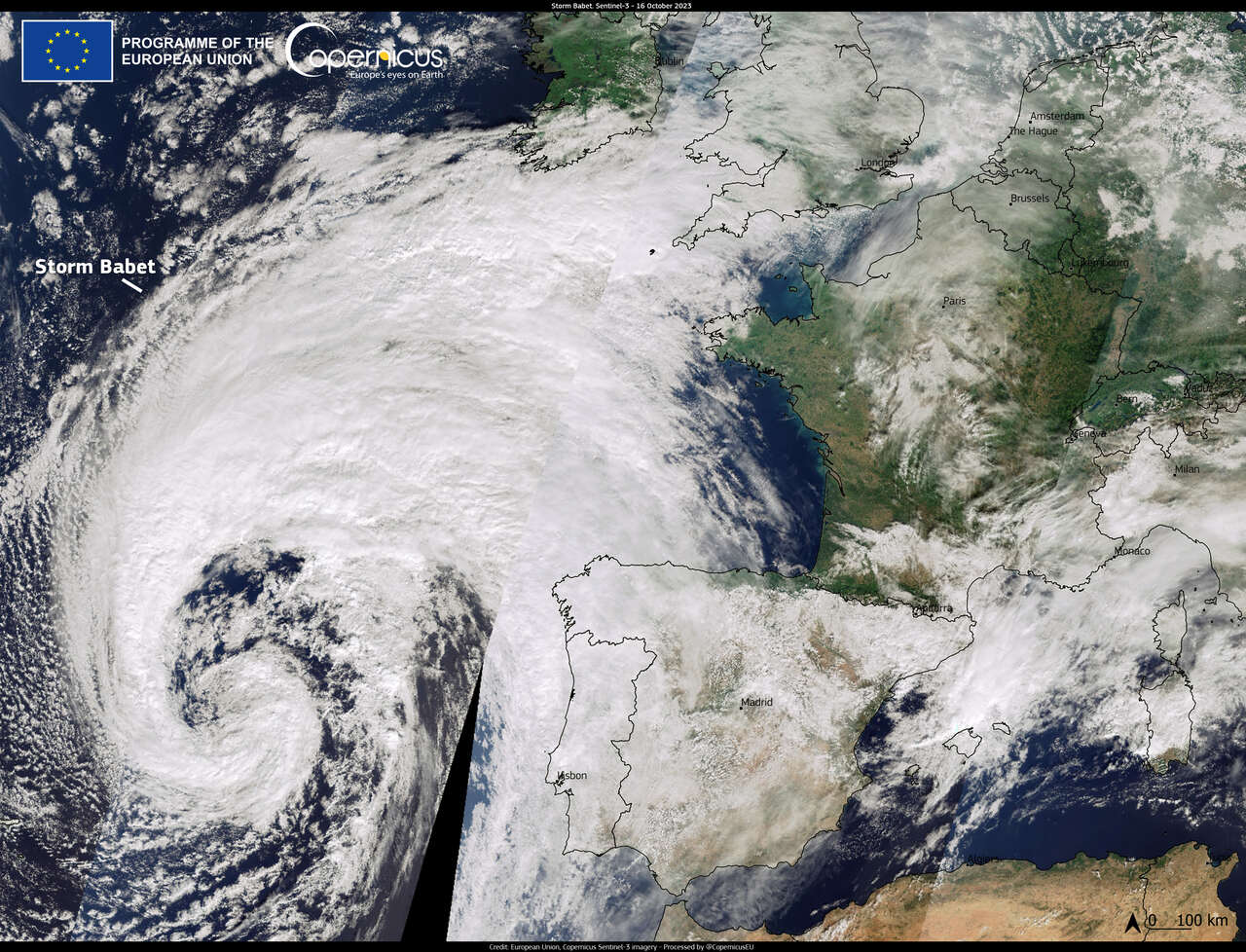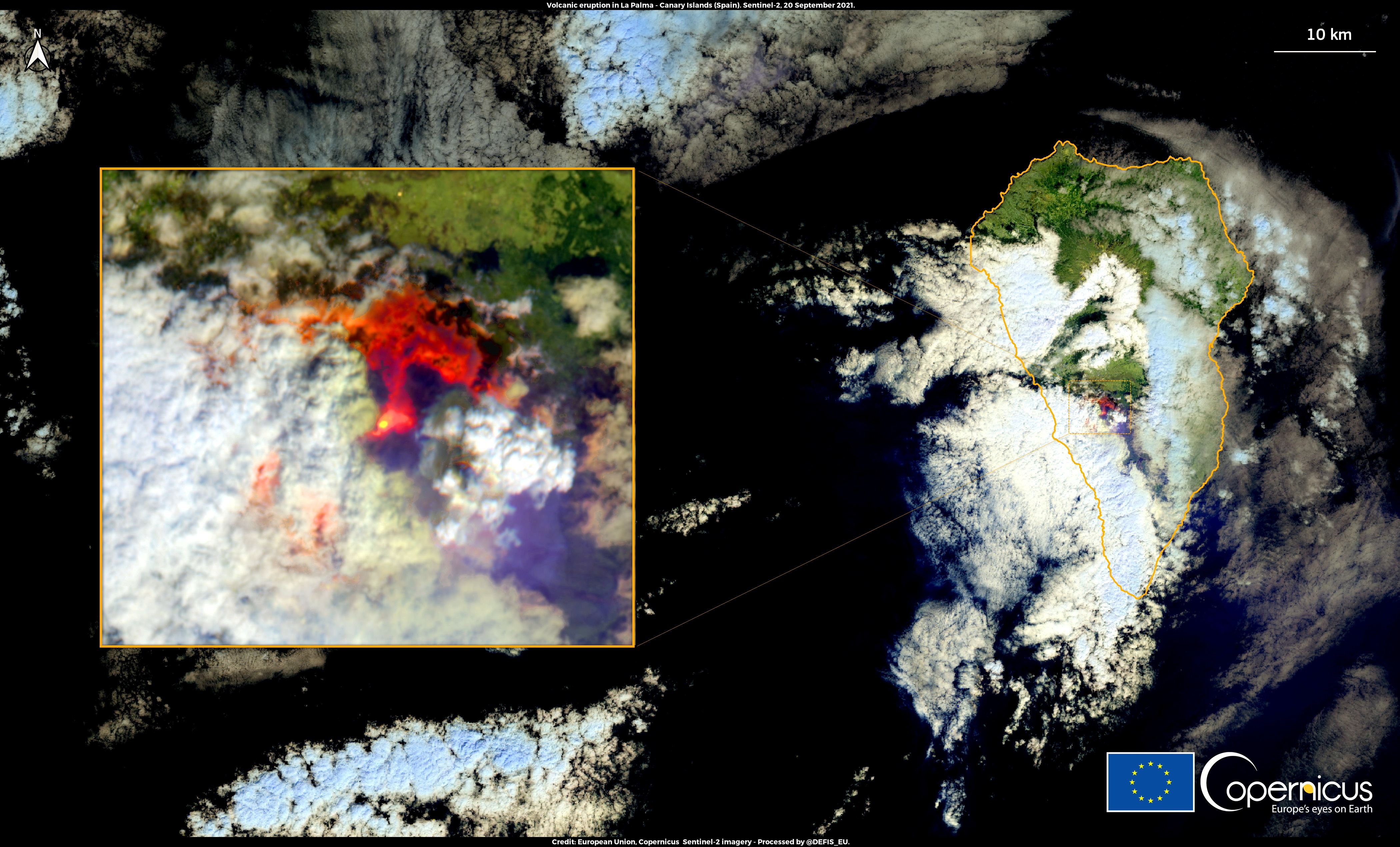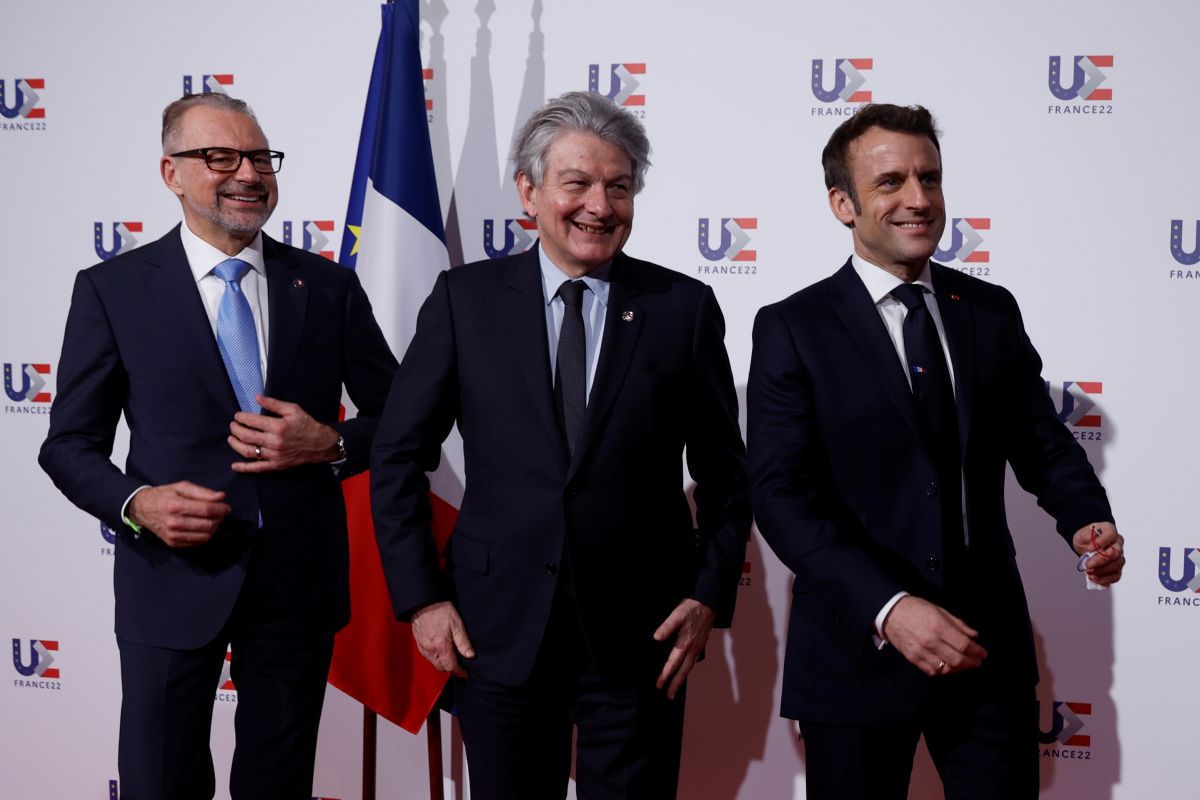UK Returns to Space Cooperation with the EU
The agreement to associate the UK into the EU’s Earth Observation Programme Copernicus breaks the post-Brexit deadlock on the issue. It demonstrates the importance of European space cooperation in the face of increasing global competition. The agreement will strengthen further Copernicus development. It could also provide an incentive to coordinate space security activities between the EU and the UK.
 European Union/Copernicus Sentinel-3 Imagery / Cover Images / Forum
European Union/Copernicus Sentinel-3 Imagery / Cover Images / Forum
From 1 January 2024 the UK gained access to the services provided by Copernicus and British companies will be able to bid for contracts under the programme. The December 2020 Trade and Cooperation Agreement provided for the UK to maintain a presence in certain EU programmes, including Copernicus. However, the political dispute over the Protocol on Ireland and Northern Ireland blocked talks on the EU side, and the deadlock was only broken last February with the so-called Windsor Framework agreement, which deals with divisive issues such as the movement of goods between Northern Ireland and the UK.
EU Capabilities and the Role of Copernicus
The EU is one of the world’s leading space players, alongside countries such as the U.S., China, and Russia. Its policy is implemented through several programmes and the most developed services provide the Earth observation system Copernicus, the satellite navigation system Galileo, and the satellite-based augmentation system EGNOS. In addition, the EU is working to develop the Space Situational Awareness (SSA), as well as the GOVSATCOM and IRIS2 systems for secure communications and satellite connectivity.
Copernicus is the world’s most advanced Earth observation system, collecting data from sensors on the ground, at sea, and in the air, as well as from satellites. Most of this data is available free of charge and is used both for scientific purposes, such as the study of climate change or the state of the atmosphere, water, and land, as well as in various sectors of economy, including agriculture, fisheries, and transport. Some data is available on a limited basis, for example, to Member State services, and improves the response to emergencies such as fires and floods. In addition, Copernicus plays an important role in security issues, supporting the EU and its Member States in monitoring land and sea borders or protecting critical infrastructure, among other things.
The special role of Copernicus highlighted Russia’s full-scale invasion of Ukraine. In 2022, at the request of the Ukrainian authorities, the EU decided to associate the country with its Satellite Centre (SatCen). This allowed certain data, such as optical and radar satellite images, to be provided for Ukraine, although the exact nature, number, and list of entities entitled to receive them are classified. Among other things, SatCen supported the Ukrainian side after the destruction of the Kakhovka Dam, in documenting war damage, for example in Bakhmut and Mariupol, and in threat analysis regarding the situation at the Zaporizhzhia Nuclear Power Plant.
The UK Space Sector after Brexit
Leaving the EU resulted in cutting the UK off from the services provided by flagship space programmes such as Galileo, EGNOS, and Copernicus. This also led to a loss of revenue for UK companies, which had previously participated in their construction. In line with the 2021 Global Strategy, the UK authorities shifted more attention to working with partners in the Indo-Pacific at the expense of European countries, and the main policy objective, according to the National Space Strategy and the Defence Space Strategy, was to strengthen own capabilities and develop the domestic space sector over a 10-year horizon.
Insufficient funding hampered the implementation of the objectives—the space budget for 2022 was about $1.2 billion (around $300 million less than the year before), while funding for space programmes of other European actors increased, for example the EU budget was about $2.6 billion, France, Germany, and Italy spent around $4.2 billion, $2.5 billion, and $1.7 billion, respectively, while Poland almost doubled its spending from around $73 million in 2021 to around $136 million in 2022. Concerns have also been raised about the lengthy administrative procedures that have delayed the construction of several spaceports on UK territory.
Development of a UK satellite navigation system proved too expensive, and the investment in OneWeb, a company providing broadband satellite internet similar to Starlink, was misguided due to technical limitations, including fundamental problems such as satellites that are too small and placed at too low orbit. The company was eventually acquired last year by French Eutelsat. The first attempt to launch satellites from UK territory early last year was also unsuccessful when Virgin Orbit was responsible for a horizontal launch from the spaceport in Cornwall. Greater economic potential is in the construction of ports that enable vertical launches. Even though works on these are delayed, the port on the Shetland Islands, for example, could be operational this year (the first launch was due to take place last year at the latest).
Prospects for EU-UK Cooperation
Despite the agreement on UK participation in Copernicus, the conditions under which part of the cooperation will take place have not yet been defined. Detailed agreements will require access to the security component, including land and sea border surveillance and external actions. This is mainly of operational importance, but will also affect the position of UK companies, and should the parties decide not to cooperate in these areas, they will be excluded from sensitive contracts for security reasons. However, the UK received access to Emergency Management Service, so it will be covered by an early warning system and also able to obtain maps in the event of emergencies such as floods, fires, and droughts. The Copernicus budget—€5.8 billion for 2021-2027—will also be supplemented by a UK financial contribution of over €600 million. However, this will not have a significant impact on the achievement of the programme’s objectives, as the UK joins the work with a three-year delay.
In addition to Copernicus, it was important for the UK to retain access to data from the EU’s Space Surveillance and Tracking (SST) service, which allows the monitoring of objects orbiting the Earth, such as satellites and debris. In the context of the construction of several spaceports in the UK, this will help to increase the safety of launches and the deployment of small satellites into orbit. European partners will benefit from a potential reduction in costs and an increase in the speed and number of objects placed in space by using launches from UK territory (this is important given the decreasing availability of orbital slots around the Earth). UK access to the SST further strengthens the EU brand as a promoter of safe activity in space and, by broadening the user base, creates incentives for partners, including those outside Europe, to cooperate.
Conclusions
The UK’s participation in Copernicus demonstrates, first and foremost, the attractiveness of EU space technologies that medium-sized countries cannot develop on their own. Although the political impasse on EU-UK cooperation has been broken, further agreements are needed on security issues in space and from space, particularly taking into the account Russia’s full-scale invasion of Ukraine. In view of that, it will be crucial to further strengthen European space sector, on which smooth operation of positioning and Earth observation systems, as well as services based on them depend—they are essential both to ensure the security of European societies and to support partners like Ukraine.
The renewed cooperation with the UK confirms that it is possible to open EU space programmes to third countries. For example, the extension of EGNOS to countries in the Eastern and Southern neighbourhood is currently being developed, which will improve, among other things, the safety of aircraft landings in accordance with International Civil Aviation Organisation (ICAO) requirements and the navigation of ships through narrow channels. In this context, further deepening of cooperation with the UK should be considered, for example its return to EGNOS, which would avoid duplication of systems and the additional costs and resources that could be used to strengthen other space components enhancing the security of allies in Europe.





